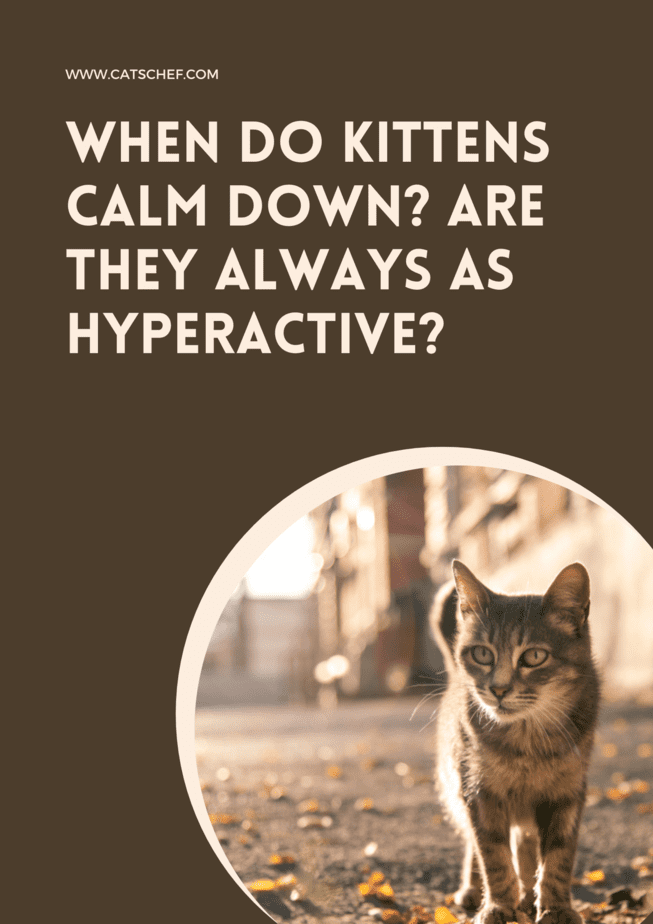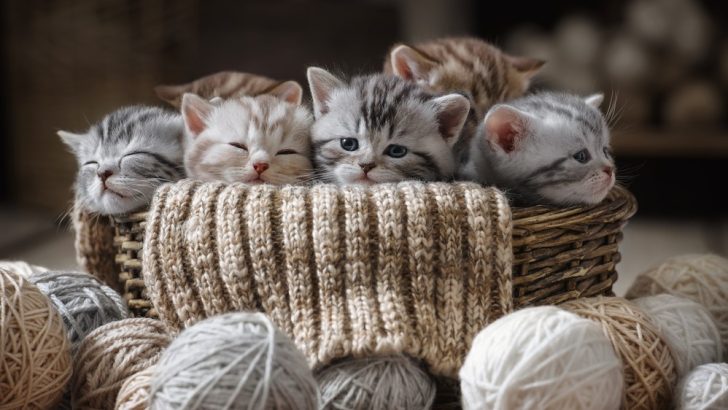Do you know how kittens jump around, scratching everything, and sometimes hissing for no reason? I used to be scared as a kid until I realized this was normal behavior for a young feline. But, when do kittens calm down?
Well, make yourself comfortable, and let’s dive into the story.
Once upon a time, there was a city named La Purr. Up in the clouds, where everything is better, and near the pristine lake Kitticata. You can only imagine those landscapes and serene atmosphere. It was literally heaven on Earth.
Or at least it was until queen Nora gave birth to a little feline. The kitty was named after the goddess of fire, light, and volcanoes, or as habitants called her, the mother of fire – Nina. She was a ginger kitty, with distinctive fiery patches on her body.
Since that particular day, everything changed. The harmony and balance that used to be something this magical city was recognized for, didn’t exist anymore. But, why? Did someone curse the city or is Nina just being mischievous?
Not even the old wise man had an answer. The queen herself started wondering if giving birth was a wrong idea. When do kittens calm down? How come no one had problems before? Could it be because of her given name?
There are plenty of questions that required answers, and she found some…
When do kittens calm down?
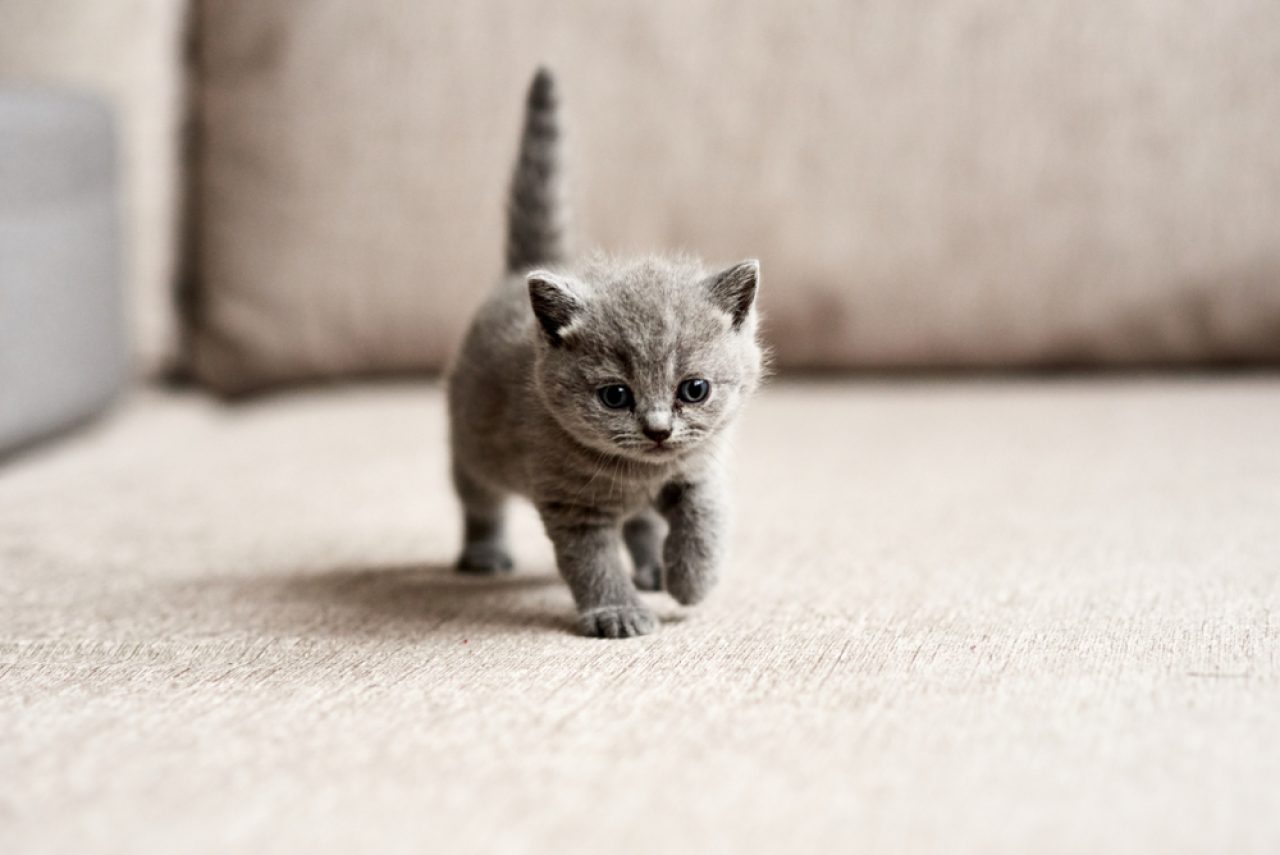
As an old book says, by the time they reach 6 months, they are adults and that’s when they calm down a bit. Kitties are literally bundles of joy and full of energy. There’s not a second in a day that you don’t want to be around them.
“Okay, so newborns are a game changer. Now everything started making sense. Nina is being a mischievous little devil because she’s too young. She needs to learn some proper, lady etiquette.”
With this thought in her mind, queen Nora continued reading. Apparently, kittens eventually start losing the excessive energy that they have and they start behaving accordingly to the house rules. With time she’ll learn to be active at the same hours of the day when the rest of the household is dynamic as well.
Cats are crepuscular animals, which means that they are mostly active at dusk and twilight. But, as they are learning new rules, they’ll start being active during the day and rest when their owners do, too.
“Why didn’t I read this on time? I could’ve been prepared…”, Nora thought. “So, there are some stages that explain when kittens calm down? Let me check that out too.” There was another book on the table with dark green covers. She removed the dust from its top and started reading.
Kitten behavior by stages
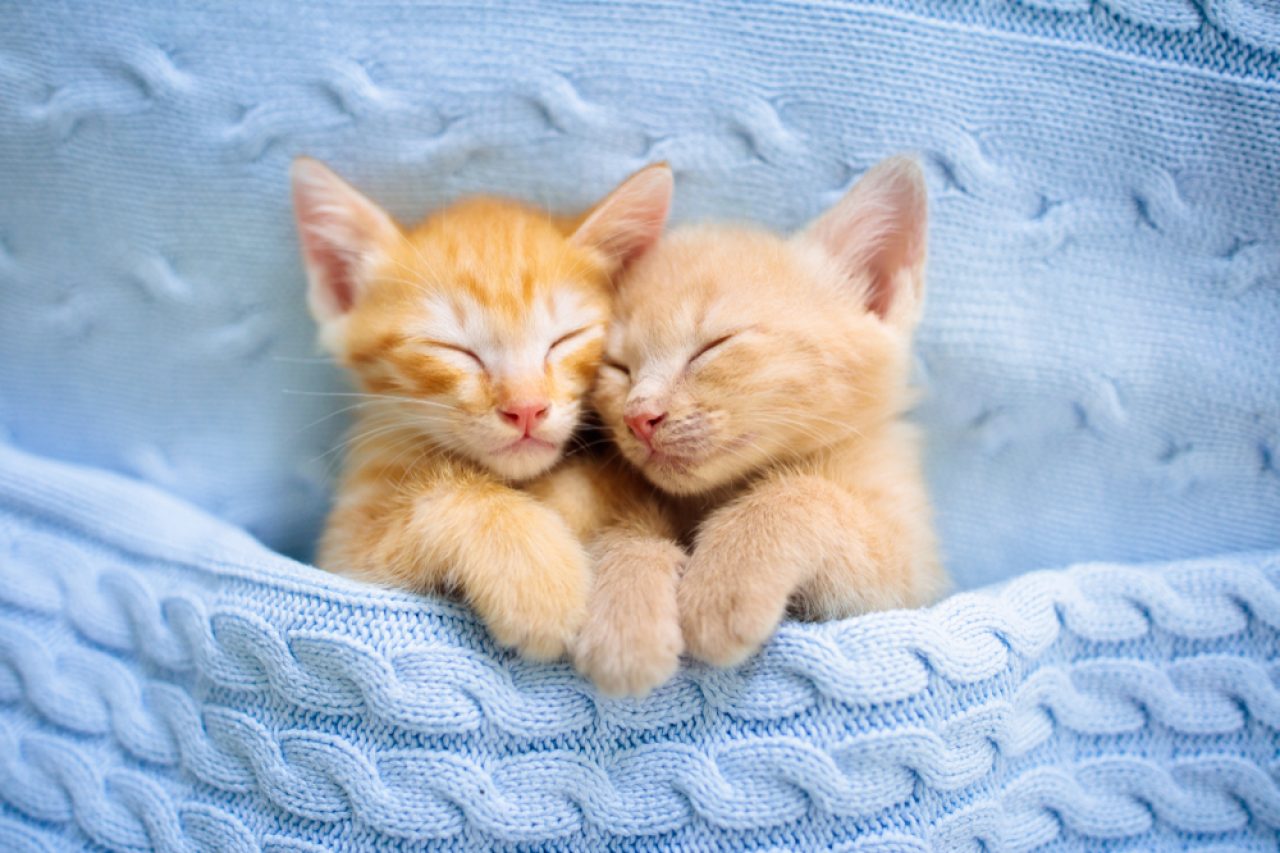
Cats are aging pretty fast, so they will reach teen years in like 4-9 months and they’ll be elders by the time they reach 11 years. Nora wanted to read it all to the tiniest detail.
0-3 months
When kitties are at this stage of their lives, they are super clumsy but cute. But also clumsy, but… Okay, you get the point. They are still learning how to move around and use their muscles and limbs. Stumbling and falling down while they’re exploring the world around them will be a normal occurrence.
As soon as they arrive in this beautiful world, they’ll need their mommy because they will need nursing. Also, someone has to teach them the basics, clean them, take care of them and love them unconditionally. Do you think there’s a better choice than the queen herself?
These are considered their toddler years and even though their coordination will be a bit messed up, this is the time when they will be the most socially active. They’ll want to explore and accommodate into their (a.k.a. your) new home.
3-9 months
As soon as your furbaby reaches her fourth month, she enters her teenage years. And how do teenagers behave? Little rebels, aren’t they? This is when their hunting instincts awaken and when they’ll chase everything and everybody around.
Since she’s going to turn on her hunting mode, this is the period where you may have a couple of sleepless nights. Your fluff will start sleeping more during the day and become active during a crepuscular animals’ peak hours.
The good part is that you’ll be able to see how your feline actually grows up. She’s going to be extremely curious and energetic, so this will be the perfect time to train her. Try using a leash when walking around the neighborhood, or teach her some tricks. It will be super fun!
9-12 months
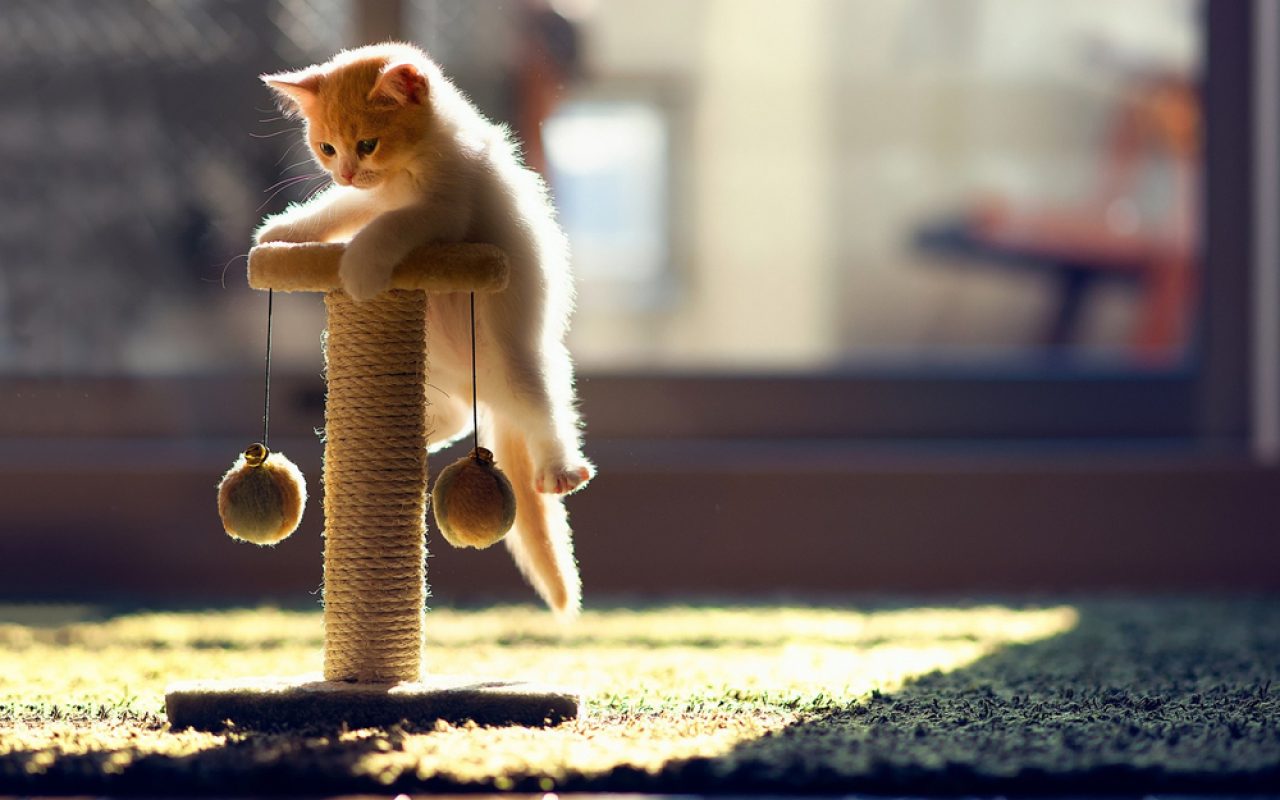
We could refer to this period as your kitty being a young adult. She’s moving toward her mature age and she’ll definitely want to mark her territory. So, you can expect a lot of scratching, biting, and even a bit of aggressive behavior.
However, your feline will at this point start mirroring your behavior as well. She’ll sleep mostly at night and require attention and be active during the day. Her energy levels will significantly drop, so you won’t need to spend too much time with her playing with those toys.
Each cat is different, so some may grow faster, especially if there’s another feline that can teach them some basic things. Also, genetics can play a major role, but approximately after the first year of their lives (which is around 15-20 human years when it comes to the development of a youngster), they will calm down.
12-24 months
During this stage of their lives, felines are reaching full maturity. They already know how to behave and they formed their own habits in your household. These furbabies are mostly calm, but still willing to have playtime.
If you wanted to move to a new place, at this point, it will be too late. Cats at this stage are at higher risk of stress and anxiety. This means that they are more unyielding to changes, so avoid even changing the position of the scratching post or their litter box.
How can you manage your kitty’s behavior?
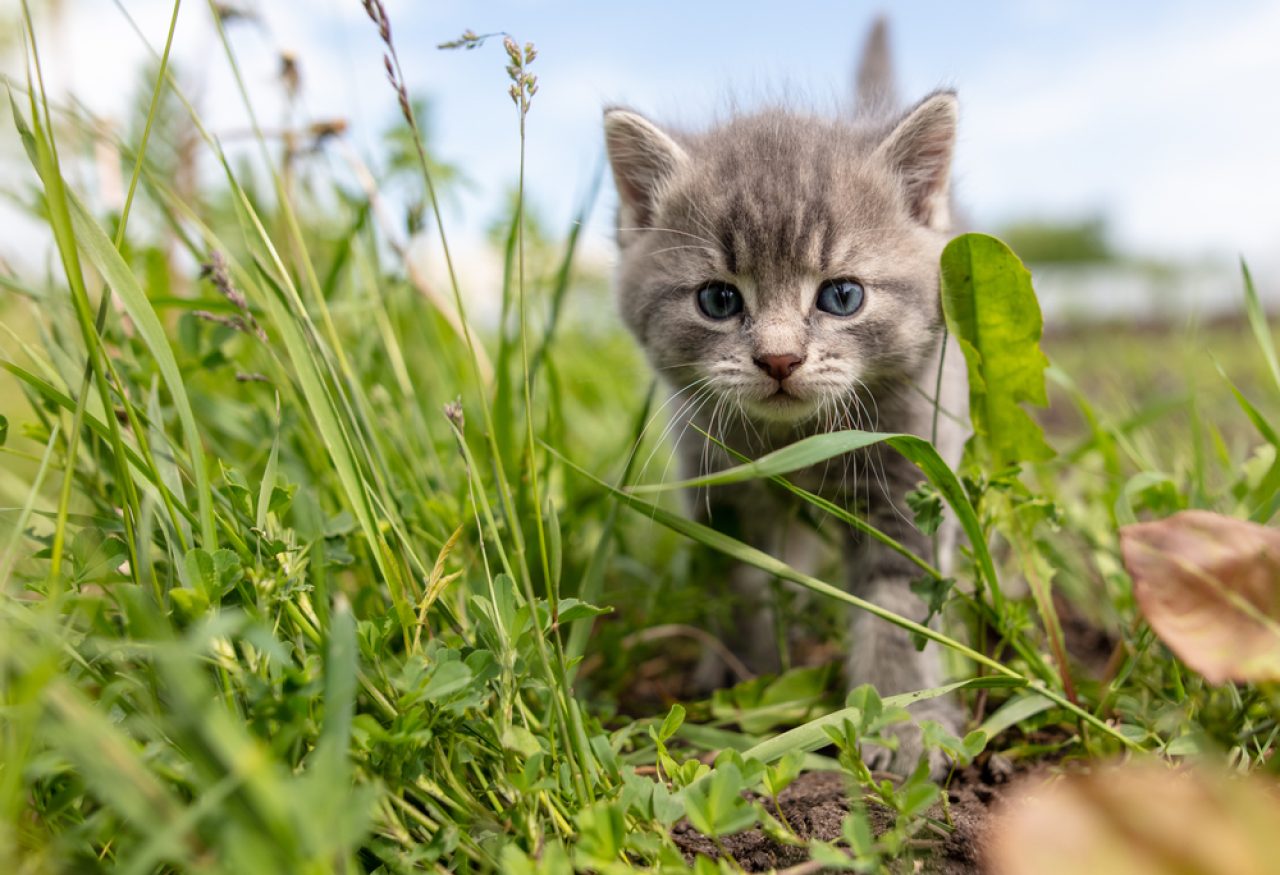
“So, when do kittens calm down has been answered. But, how can I manage her behavior? Is there something that I can do for Nina as her mother? They said that the whole process goes faster if the kitty has someone to learn from. I’m the best she could get!” queen Nora thought to herself.
She reached out for another chapter in the same old, green book, and started reading about managing kitty’s behavior. The following was written down.
1. Toys, toys, toys
If you want to provide fun times for your kitty, give her a lot of toys. This will keep her busy and stimulate her both mentally and physically. If you give her enough entertainment, you may save your furniture and your window curtains.
Whether you opt for feather toys, balls, a little mouse that she can chase around, or something that has catnip inside to stimulate her brain more – she’ll surely enjoy it.
2. Scratching posts
Cats’ trees, scratchers that can stand separately, or those that you need to support on the wall, just get them! As toys will save your furniture and curtains, imagine what this magical piece can do. It will also take care of her nails and your kitty will be able to shorten them on her own.
3. Interactive playtime
What’s meant by this? Enjoy her playtime with her! If you were curious about the question “When do kittens calm down?”, have you ever thought that the answer may be “when they get tired, like kids?”. If this thought didn’t cross your mind, it’s okay, now you know this trick as well.
Also, when you’re playing with her, the time you spend together strengthens your bond and that’s incredible in the long run. So, don’t shy away from all those toys that you have to help her use. Those are even better and they will keep you entertained too!
What makes an adult cat irritated and hyperactive?
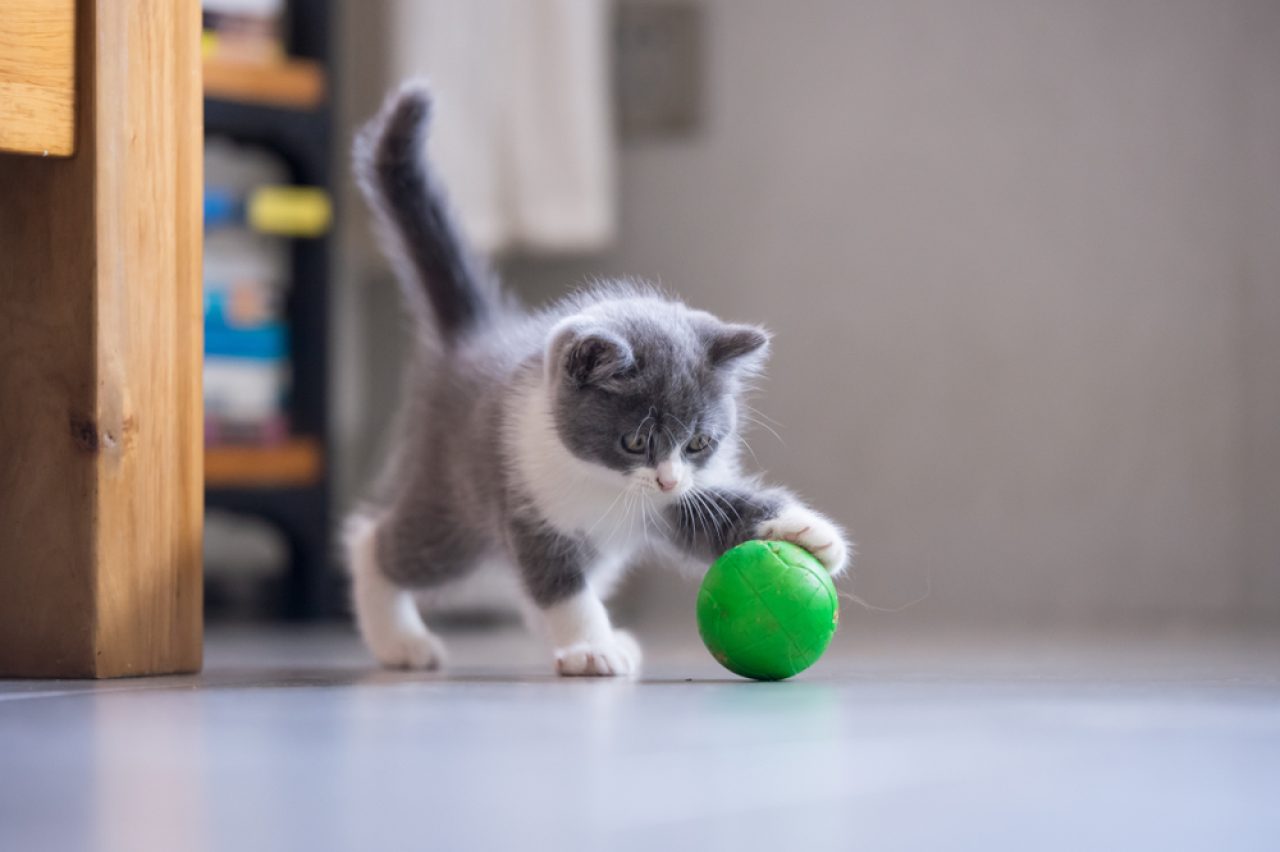
After reading a lot about kittens, Nora found another book about adult cats being hyper. As curious as she is, she hopped on the fifth bookshelf and took a royal blue book from there.
This one was not as dusty as the green book, but she still blew away some dust particles. She made herself comfortable again and started reading about the new topic. There’s no doubt that some things annoy her easier than others, like when someone wakes her from a nap, but queen Nora wanted to know more.
The book was split into 5 chapters and she started reading the first one right away.
1. Waking her up
What is a cat’s favorite pastime activity? If you answered sleep, you’re right. Every single cat, no matter which breed we’re talking about or how old she is, enjoys taking naps and sleeping. They’re not lazy, no no. Being active requires some rest afterward, don’t you think?
So, whenever you wake up an adult cat, and you do that in an unexpected way, especially if she was just entering dreamland… Wouldn’t you be cranky?
While she’s sleeping, the cat is not aware of the possible threats. If she chose to take a nap in your living room, on your lap, or on the couch next to you, that means she trusts you completely. So, an adult cat will get irritated if you wake her up before she was ready to get up.
At this point, Nora realized that these were books for people, but she kept reading regardless.
2. Unwanted petting
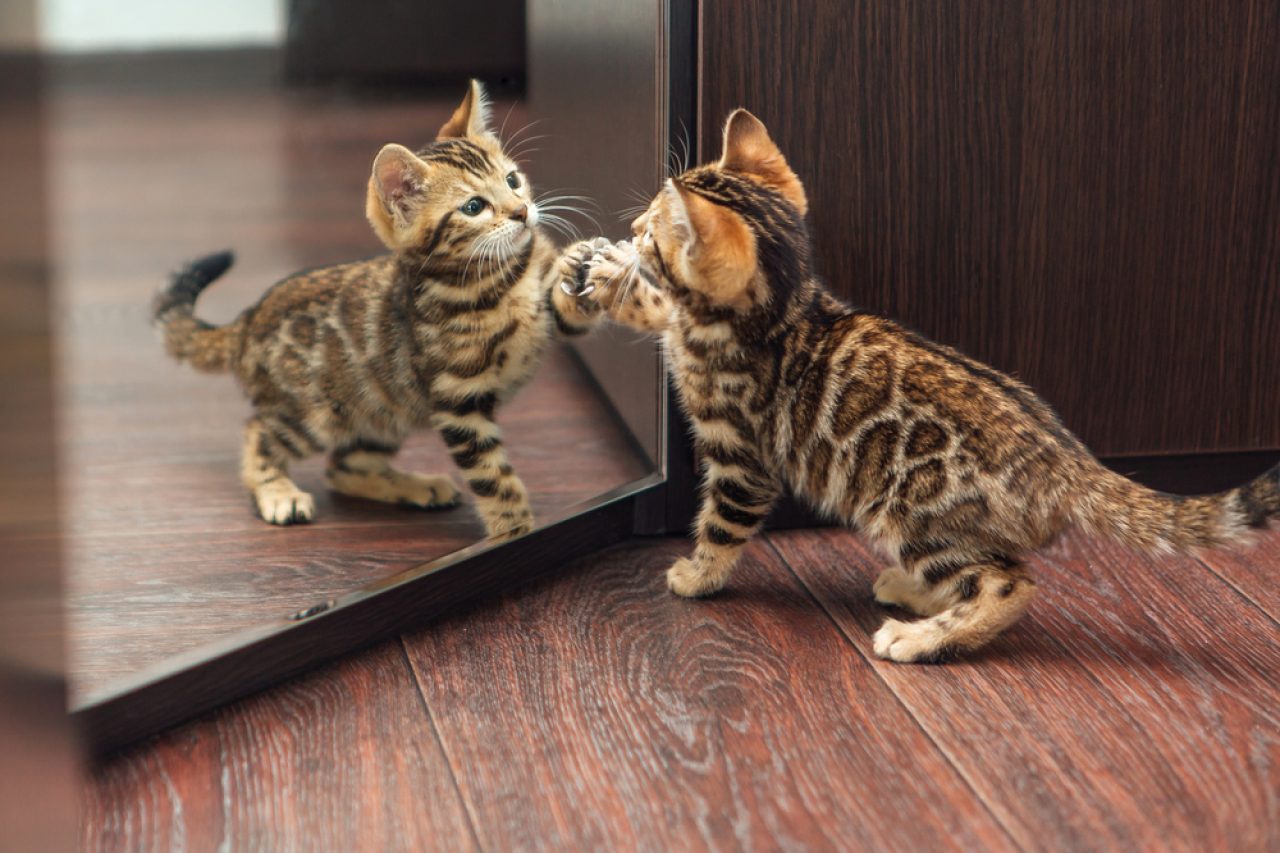
Is it possible that there is something like unwanted petting?! Don’t cats like it when you snuggle with them and give them attention? Yes, but not when they didn’t ask for it. It’s that simple.
Never approach her from the back and pick her up violently. If you do so, I can only wish you good luck since your worst cat nightmare is about to start.
Nora started nodding her head. “Yes, hooman. Get ready for scratches and bites!”
Also, even though she may be purring at first when you start petting her, after some time your adult feline may get irritated. The problem here is that her skin is super sensitive at times and it probably got overstimulated.
If she starts squirming on your lap and tensing her body, both of those are strong indicators that something bad is about to happen. She may even stop purring and get angry. Avoid touching her in those moments, especially her belly area, since that’s the most sensitive part of her body.
3. Not respecting her territory
You’re well aware that territory is highly important to your feline. She’ll mark it and defend it with the last atom of strength that’s left in her. That’s the reason why each pet in the house should have its own personal zone that no one else gets to, not even the owner.
They will understand each other and rarely cross the boundaries of those parts of the house. However, as soon as an intruder gets close to your furbaby’s area, she’ll become aggressive. People are also not welcome, since arranging things that she gathered in her corner will be considered trespassing.
4. Neutering
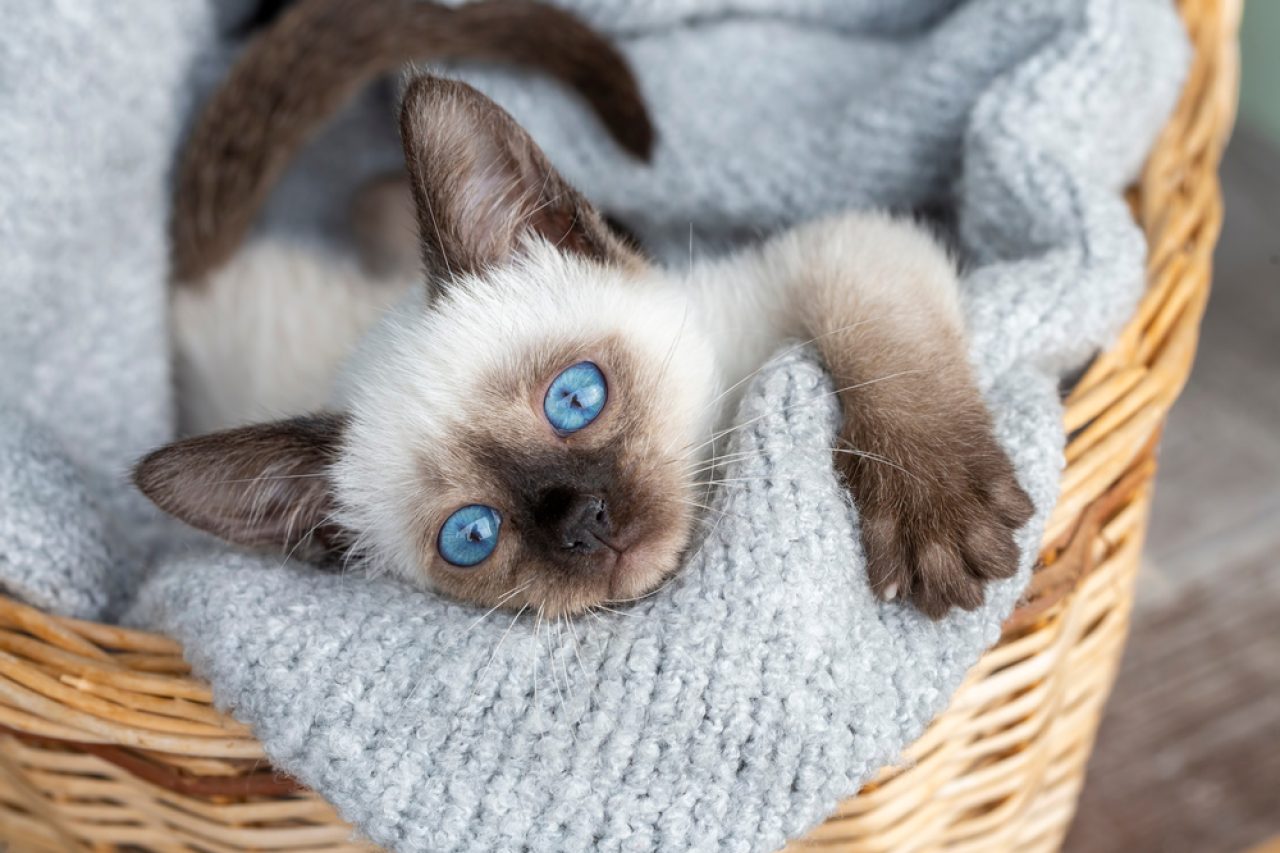
The whole procedure is not easy for them to handle, so it’s normal that they won’t be feeling extremely happy once everything is done. Your feline will still feel some discomfort, and for that reason, the cat may become hyper and easily irritated.
However, this will be a problem solely right after the procedure. Neutering, in general, decreases aggression in cats.
5. Genetics
Genetic predisposition, as well as cat breed, also play a major role in adult cats being hyper. This means that depending on how her parents behaved and whether they had some medical issues, will greatly affect your feline.
Is my cat hyperactive and should I be worried?
Nora closed that book as well and started wondering how can she know if any of her family members, younger or older, is hyperactive. Luckily, she was in a library and the answer was one jump away. She reached for the book on the third shelf and started reading.
If a feline’s behavior is truly hyperactive, you’ll be able to notice that she’s frantically running around your house, from one room to another. She may also follow people or other pets around the house as well.
Of course that all cats are energetic, but if your kitty is jumping over furniture or running across it, she’s being hyperactive. She’ll be scratching everything and everybody, and she’ll definitely be pouncing all over the place.
Since this is considered to be normal behavior, especially when it comes to kittens, there’s nothing to worry about. The only thing that you can do is actually try to redirect your feline’s energy into something productive.
Perhaps at the start, you may be constantly repeating the question, “When do kittens calm down?” but once they do, you’ll miss it.
Feline Hyperesthesia Syndrome (FHS) – what is that?
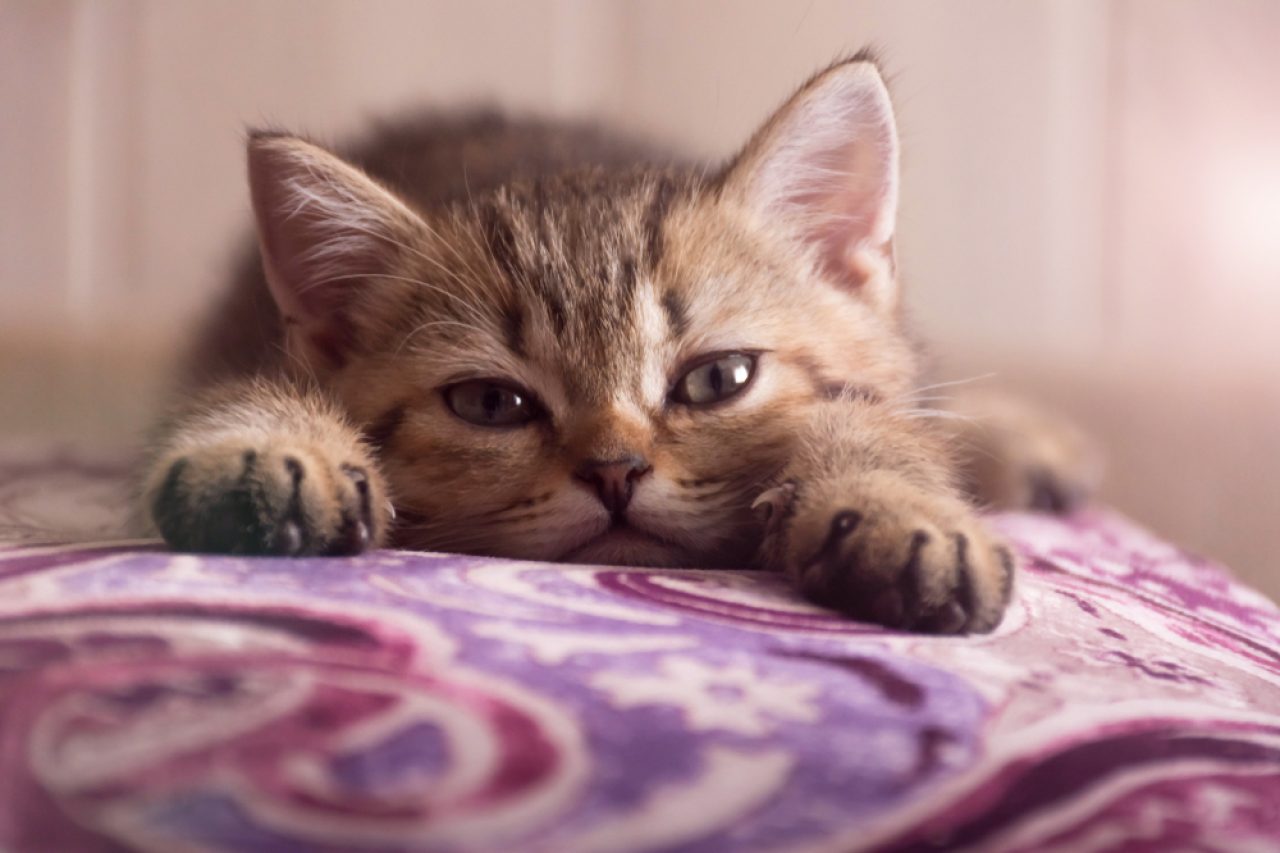
This is something that most owners don’t notice until they touch the sensitive area. The most common part of her body that’s extremely delicate is your feline’s lower back, right next to her tail. If she has feline hyperesthesia syndrome (or shorter, FHS) she may become aggressive.
From a simple scratching of that particular place to more destructive behavior such as biting, or scratching. In some severe and more serious cases, some cats start drooling, their pupils dilate, and their skin ripples.
They may also viciously scratch themselves all over their body and start chasing their tails. Siamese cats, for example, can possibly have this syndrome because of their genetics. There are still no concrete reasons why this affects cats.
Stress, anxiety, and problems in the lower part of cats’ bodies may be somehow related to this, but scientists are still looking for an answer. If you suspect that your feline may have this problem, contact your vet immediately and ask for some medications or adequate treatment for your furbaby.
How to calm your kitty down?
After reading everything about when your kittens’ spirits, and why adult cats get irritated, the sun started to set. Queen Nora needed to go and have dinner with her little Nina and the rest of her family members, but there was only one thing that she needed to know.
The answer she was desperately seeking now was how to calm the kitty down. She knew that she’ll have to handle hyperactivity for quite some time, but if she can make her baby cool off a bit faster, she wanted to know how. This is what the book said.
1. Give her space
When something irritates you, do you need some personal space to calm down and figure out what exactly happened? That’s why your feline will need the same. So, if you’re still asking, “When do kittens calm down?”, try not to bother her for some time.
Let your fluff go to her own territory and stay away from there. When she’s ready, she’ll step out and ask for your attention, I promise. Avoid approaching her, rather step back and show her that you’re not a threat.
2. Have treats close by
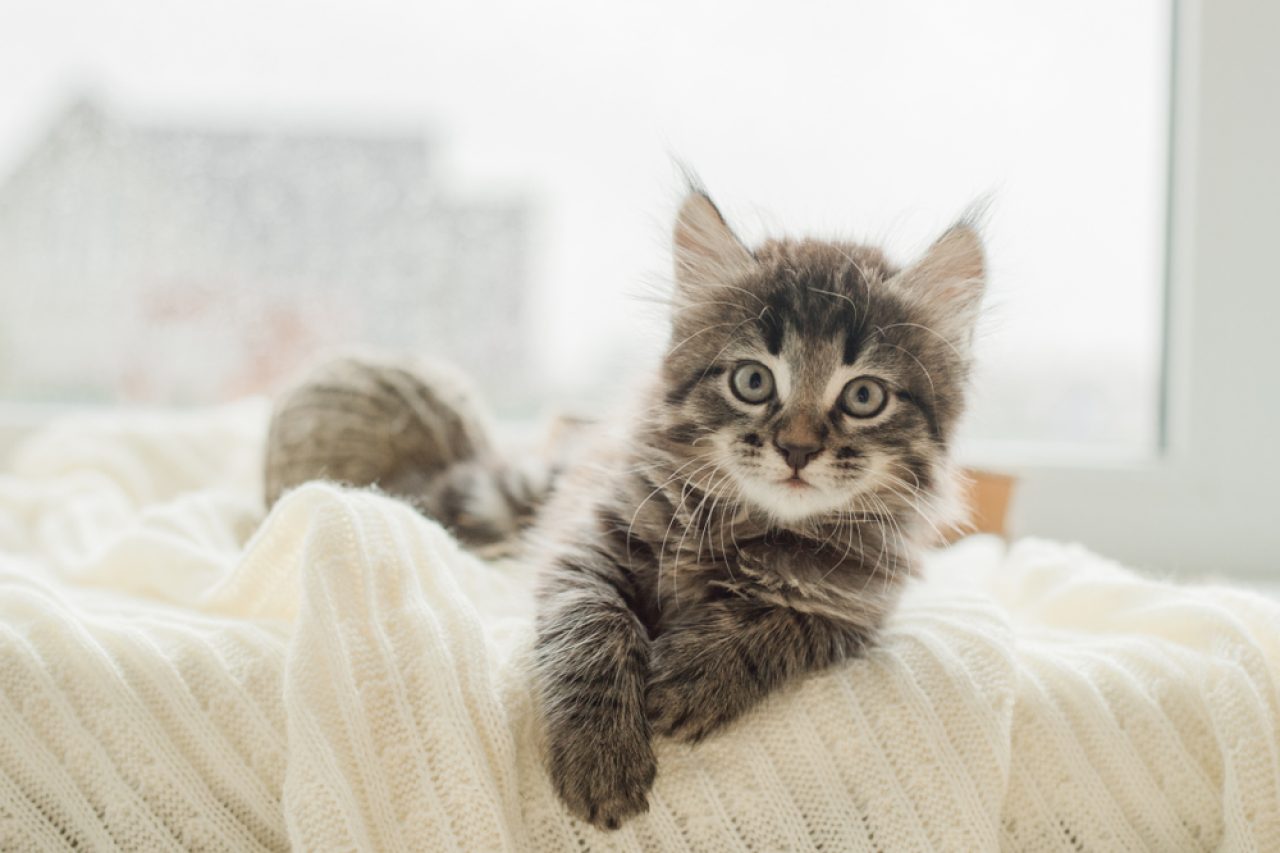
Save this for the after-a-while approach. Don’t force your feline to hang out with you if you just pissed her off. But, keep in mind that she can’t say no to food and treats, and use this to your advantage. Whatever happens, kittens’ attention will always be on food and it’s the best way to calm her down.
Generally, your furbaby doesn’t hold grudges against you, but it’s better if you prepare a peace offer that she won’t be able to turn down. Once you do that, she’ll completely forget that she was angry.
3. Playtime and petting
Your third and final move should be to offer her playtime and petting, but only if your fluff requests attention, not before. She may start interacting with you, meowing, or cuddling with you. She may even jump into your lap, but rather start petting safe zones, like ears and under her chin.
You can also bring her favorite toy and try to convince her to play with you. If you succeed, perfect.
Final words
Damn! I was complaining about my bestie being the clumsy one and now I stepped on my cat’s tail. Nora woke up and just looked at me with a little hatred in her eyes. Then she went back to sleep.
I guess she’s dreaming about La Purr again. When she was a kitty, I used to talk about this beautiful city, surrounded by clouds, where everything is in perfect harmony and it’s always peaceful. That was my way of calming her down when she’d get hyperactive.
In fact, I was describing my little apartment on the top of the tallest building in my city that the two of us were sharing.
But maybe we’ll talk about that some other time. I have to let Nora sleep and typing sometimes wakes her up. Ciao!
